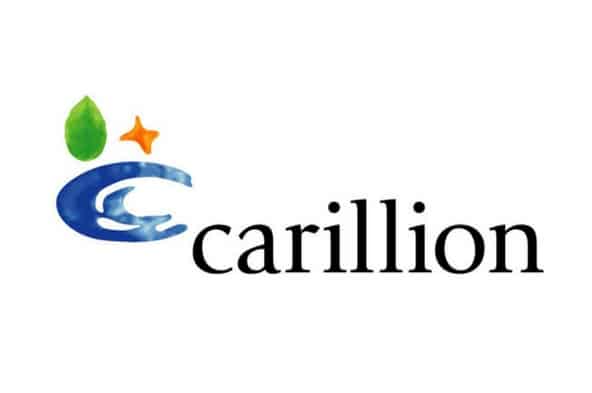Winding Up Petition
If your company owes money to creditors and hasn’t responded to their demands for payment, you may receive a winding up petition (WUP).
A winding up petition is a legal petition from a creditor. It’s the most serious legal action that a creditor can take against your business. Via a winding-up petition, a creditor can permanently close your business via the courts through the compulsory liquidation process.
If your business has received a winding-up petition, it’s important that you act immediately to protect your business. Contact us now to talk to our insolvency experts and learn more about your options for responding to a winding-up petition.
What is a Winding Up Petition?
A winding-up petition is a type of legal action taken by a creditor. If a creditor is owed money and hasn’t been paid after making a statutory demand, they may file a winding up petition to recover the amount they’re owed via the courts.
If a creditor issues a winding up petition, a court hearing will be held. If the winding petition is successful, the creditor may receive a winding up order. This leads to compulsory liquidation and the closure of your business in order to repay your creditors.
Winding up petitions are publicly advertised in the London Gazette. Receiving a winding up petition not only puts your business under legal pressure — once it’s advertised, it may also affect your customer, supplier and banking relationships.
In order to issue a winding up petition, a creditor needs to be owed at least £750. They also need to be able to demonstrate that your business has ignored previous demands to pay its debts.
Winding Up Petitions: The Basics
- Filing a winding up petition is a serious step that a creditor will typically only take if all other methods of recovering their money have been exhausted.
- If your business receives a winding up petition, it’s essential that you seek advice and respond as quickly as possible. Failure to respond to a winding up petition can lead to your company being forced into compulsory liquidation.
- It’s important to respond to any winding up petition, even if you believe the winding up petition is malicious or don’t believe the debt is legitimate.
- As a company director, you could receive charges of wrongful trading if you continue to trade after receiving a winding up petition and don’t take immediate action.
- Receiving a winding up petition can be a daunting experience. However, there are many options available for your business to use in response, from paying the creditor to using insolvency procedures such as a CVA, administration or liquidation.
You’ve Received a Winding Up Petition. What Should You Do?
If your business is the subject of a winding up petition, it’s important that you speak to an expert and take action as quickly as possible. A winding up petition is typically the final step a creditor will take to recover debt and is a serious legal message to your business.
As specialists in insolvency, we’ve helped hundreds of UK businesses successfully respond to winding up petitions and legal demands from creditors. If you’ve received a winding up petition, contact us as soon as you can for a free, private consultation to discuss your options.
As a company director, you’ll need to cease trading immediately if your business is insolvent or likely to soon be insolvent. Continuing to trade while insolvent could expose you to charges for wrongful trading in the event that your business is liquidated and investigated.
A winding up petition is a serious issue that needs to be dealt with quickly. Several options are available for your business in the event that you’re subject to a winding up petition:
- Pay the demand. If the debt is valid and your business has sufficient cash to pay, you can pay the creditor to satisfy the demand. Following payment of the debt, the creditor may withdraw the winding up and legal pressure against your business will end.
The creditor may also require that you pay for their costs associated with bringing the winding up petition against your business.
If your business lacks cash to pay the demand, options such as invoice discounting or factoring and/or asset financing may allow you to quickly raise funds to settle the debt and avoid the petition being advertised. - Negotiate with the creditor. In certain cases, your business may be able to negotiate with the creditor directly to reach an agreement regarding the debt without any need to go to court.
- Dispute the debt. If you believe that the debt is not valid, or that the amount sought by the creditor is inaccurate, you can dispute the debt in court. This is a complex process that typically requires the assistance of an experienced solicitor.
- Propose a company voluntary arrangement (CVA). Proposing a company voluntary arrangement CVA will protect your business from legal action while giving you the opportunity to negotiate newer terms with your creditors.
- Enter into administration. Entering into administration will also protect your business against legal action. An administrator will be appointed to manage the business in the best interests of its creditors.
- Use pre-pack administration. Pre-pack administration allows for the sale of business assets prior to the administration process. You may be able to continue trading under a new company after purchasing the existing business’s assets for fair market value.
The best options for your business may vary based on your current financial situation and any existing agreements you have with creditors, suppliers and employees. Contact us to speak to our insolvency practitioners about your options for responding to a winding up petition.
Contact Us Now for Advice and Information
If you’ve received a winding-up petition, it’s important that you act immediately to protect your business. Failing to act quickly will result in the petition being advertised. In response, it’s very likely that your business’s bank accounts will be frozen, preventing you from trading.
Waiting until the petition is advertised significantly weakens your position, increasing the risk of your company being liquidated in order to pay creditors.
We specialize in insolvency and have helped hundreds of UK businesses in a diverse range of industries successfully respond to winding-up petitions from creditors. Our team can assist and advice you in taking swift action to preserve your business and avoid compulsory liquidation.
For more information or to discuss your situation, contact us now on 0161 8719 842 or send us an email to schedule your free private consultation.



